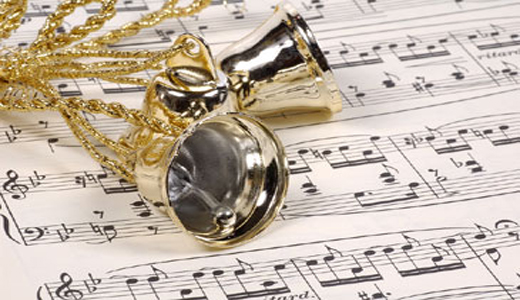
Christmas carols are beloved by all. We all enjoy singing them, whether we can sing or not. And who doesn’t love to hear a full choir sing in a cathedral with their notes resonating throughout the rafters? You may be surprised to hear how some of these carols came to be. Here are just a few random favorites:
Away In A Manger:
The words were originally thought to be written by Martin Luther, to his children, way back in the 1500s. It showed up for the first time in a songbook in Philadelphia in 1885. The words have been combined with several tunes over the years. In 1996, this carol and O Come All Ye Faithful were the two most beloved songs in England.
Far, Far Away In Judea’s Plain:
John McFarland’s family came from Scotland, where his father was the Queen of England’s coachman. They came to Utah as new converts of the LDS Church and settled in Cedar City where John organized a choir. Bishop Scanlon, from the Catholic Church, heard the choir and asked that John organize a choir for Mass to be held in St. George. Mass was held in the St. George LDS Tabernacle. It was shortly after this that John decided to write a Christmas song for his choir, because there weren’t enough Christmas carols for them to sing.
O Little Town In Bethlehem:
Phillips Brooks was the rector of the Trinity Church in Philadelphia. He took an extended trip to Europe, ending his journey in Israel. He went to the humble village of Bethlehem to see the birthplace of the Lord and was very touched by what he saw. After leaving the town, the words to this poem came to him as he reflected on the holiness he felt there.
Joy To The World:
The words were inspired by Psalm 98 and written by Isaac Watts in the 1700s. It was originally written to glorify Christ’s triumphant return at the end of the world. Only later did it become popular as a Christmas carol. Today, it is the most published Christmas carol in North America.
O Holy Night:
In France, a Catholic priest asked one of his parishioners, Placide Cappeau, to write a poem for Christmas Mass. He wrote it in his carriage on his way to Paris. He was so moved by the words he had written that he asked his Jewish friend, Adolphe Adams, to set it to music. The song was first sung in 1847, and became beloved by the French people. Sometime later, Placide left the Church, and his Jewish friend was shunned, so the song was banned by the country. Meanwhile, an American, John Sullivan Dwight, felt the song could serve as an anthem for the abolitionists, “for the slave is our brother”.
Back in France, it was Christmas Eve 1871, the Franco-Prussian war was going on. In the middle of a battle on that holy night, a Frenchman stood up in a trench and began singing “Cantique de Noel” as loud as he could. Right after, a German soldier stood up and sang “From Heaven To Earth I Come”, a famous German song. For 24 hours the two sides held a truce celebrating Christmas Day.
Christmas Eve, 1907, was the first telecast over a wireless radio. Reginald Fessenden began reciting: “And it came to pass in those days, that there went out a decree from Caesar Augustus, that all the world should be taxed…” After reading the Christmas story, he picked up his violin and played “O Holy Night”, the first song ever played over the radio. Since then this song has continued to be beloved all over the world.
The idea of singing Christmas carols are thought to have begun in the fourth century in Rome. By the ninth and tenth centuries, songs were being sung in monasteries in Northern Europe. Francis of Assisi made Christmas carols popular, throughout all churches in the thirteenth century, in Italian. Martin Luther was a great lover of Christmas songs and many Protestants enjoyed singing praises about the Lord’s birth. In England, carolers would travel from house to house, singing carols as early as the 1400s.
Christmas was not properly celebrated in America until the mid-1800s. In 1843, Joseph Smith’s last Christmas alive, his family began their celebration at 1:00 am when the family was woken up by Lettice Rushton and her grown children caroling in front of the Mansion House. Later in the day, Joseph and Emma hosted 100 people for dinner, dancing, and singing to celebrate the honored day.
It was once believed that if Christmas songs were sung before December, or after Christmas Day, it was extremely bad luck for the coming year.